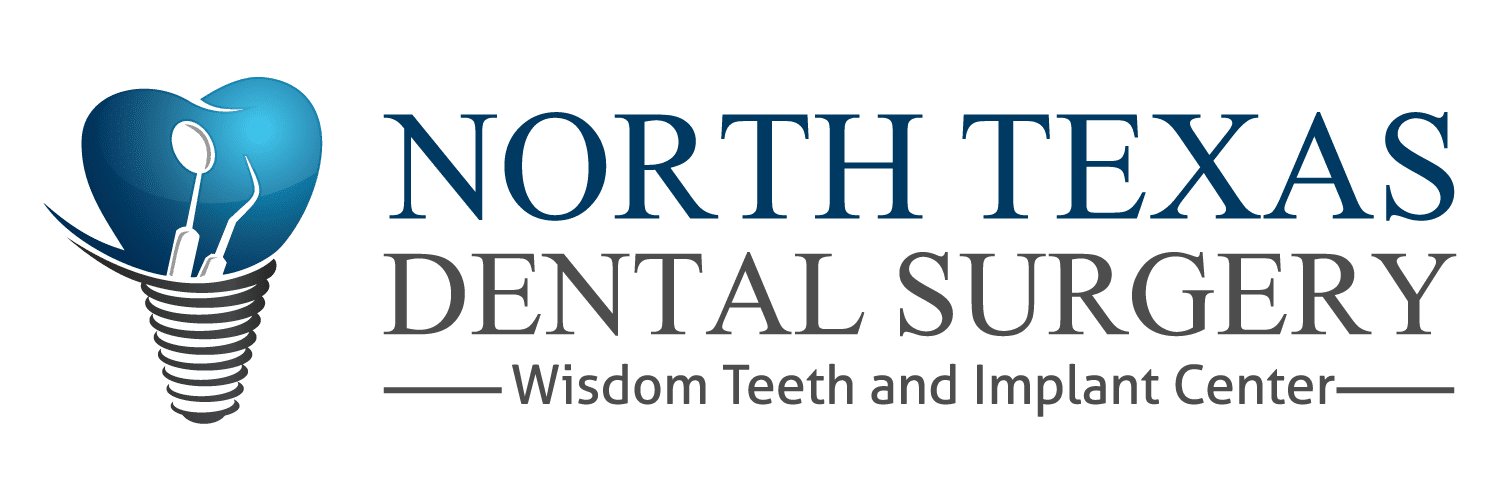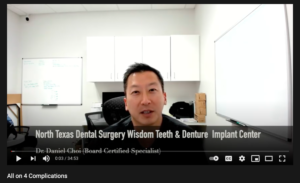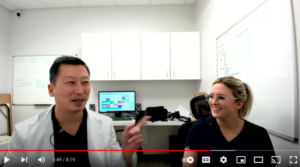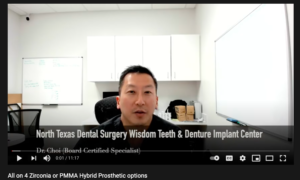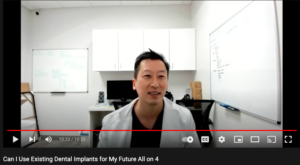All on 4 Recovery
After the All on 4 procedure, following the post-operative instructions is very important to ensure a successful recovery. Recovery is contingent on many factors, how many teeth were extracted, if bone grafting was performed, how many implants were placed, your bone density, etc. For example, older females tend to have more swelling and bruising than younger females or older males. The doctor will be able to go over any pertinent factors prior to treatment.
The first week is usually when a majority of the swelling and discomfort occurs. Pain levels can vary, as it is dependent on each patient. However, it can become very complicated if patients smoke after treatment or don’t follow recovery instructions.
Studies have shown that bone and gums will continue to contour or change shape, for 4 to 6 months following surgery. This remodeling will cause the temporary denture to gradually develop gaps underneath the prosthesis. Due to this space, food and other debris get trapped above the denture. This is why it is always advisable to never have a permanent denture made too soon after surgery. Healing time is important to ensure your prosthesis fits correctly. Since it takes 4-6 months for the gums and bone to fully heal, you will be in your temporary prosthesis during this healing time. Once fully healed, you will be fitted for your final prosthesis.
All on 4 Post Operative Instructions
BLEEDING:
Some bleeding is to be expected for the first day after the surgical procedure. If you experience any bleeding, you can place some gauze in the site. Do not remove the gauze every few minutes to check the site. Taking the gauze in and out could disrupt the blood clot and prevent the bleeding from stopping. Due to blood mixing with saliva, pinkish saliva may be present for the first 2-3 days following surgery and is of no concern. If the bleeding is excessive or does not stop after a few hours, please contact the doctor immediately.
ORAL HYGIENE:
Oral hygiene is critical for the success and functionality of the implants.
Rinse with warm salt water 2 to 3 times a day. Do not create suction, rather tilt your head side to side and let it dribble out (no spitting). For saltwater, mix 1/2 teaspoon salt in 8 oz. of warm water. Clean your mouth thoroughly after each meal beginning the day after surgery. Use a soft-bristled toothbrush and non-whitening toothpaste when brushing the prosthesis. Mouthwash not prescribed by your doctor is not recommended. DO NOT begin use of Waterpik until directed by a doctor at the post-op visit. Once cleared for use, the dental Waterpik is highly recommended to irrigate underneath the denture and flush out debris.
SWELLING:
Swelling is normal with this procedure and should be expected. The level of swelling is dependent on a case-by-case basis. Ice packs or frozen vegetables may be applied to the area for 20 minutes on, 5 minutes off. Icing for the first couple of days following treatment is important to prevent any excessive swelling. Swelling may peak on the 3-4 days after surgery, this is normal. Sleep with your head elevated and anti-inflammatory medications such as Ibuprofen can be taken to help with excessive swelling. If you develop difficulty in swallowing, trouble breathing, etc., contact your doctor as soon as possible.
MEDICATION:
If you do not have an allergy to nsaids, antibiotics, or anti-inflammatory medications, we recommend taking the following medications. Medrol dose pack is a steroid that may be given prior to treatment to reduce any post-operative swelling. Augmentin or Amoxicillin will be given after treatment to decrease the risk of any postoperative infections. Finally, pain medications will be prescribed after treatment. Ibuprofen is the best medication for alleviating any post-operative swelling or pain. Staying ahead of your pain is important and is why taking Ibuprofen every 6-8 hours for the first week is recommended. Stronger pain medications such as Hydrocodone may be given after treatment to ensure a comfortable recovery. You may or may not be prescribed an antibacterial mouth rinse (this will be at the doctors’ discretion.) Please follow the instructions given by your pharmacist. For generalized rash, itching, etc. call your dentist immediately.
DIET: Patients are restricted to a SOFT diet for the first 6 weeks.
Numbness may last for the first few hours following treatment. While numb, avoid hot liquids or foods. A liquid, then soft diet is recommended for the first couple of weeks. We recommend high protein shakes/smoothies as meal replacements, such as Ensure or Special K.
Regular foods can be incorporated back into your diet at your doctor’s discretion. However, still avoid hard or crunchy foods such as nuts, chips, seeds, steak, hard or sticky candy, apples, or hard bread like baguettes. These types of food can break or damage the temporary denture or cause issues with the implants while they’re healing. The temporary prosthesis is not as strong as the final prosthesis will be.
